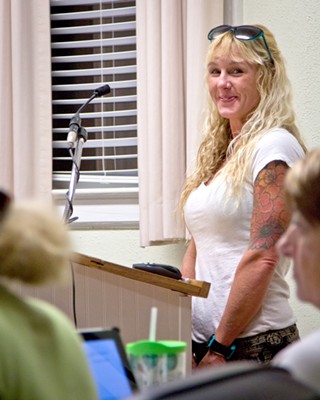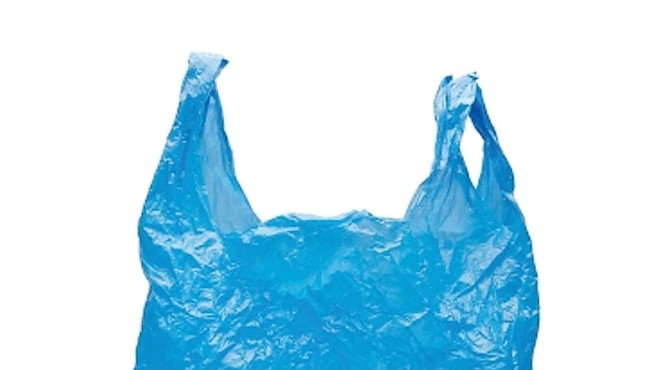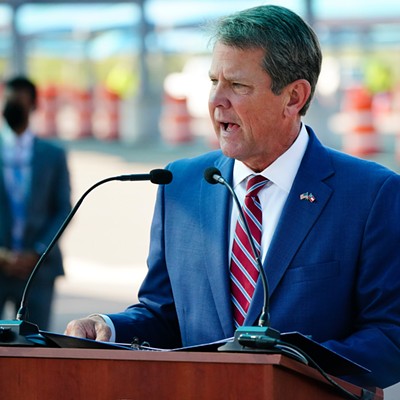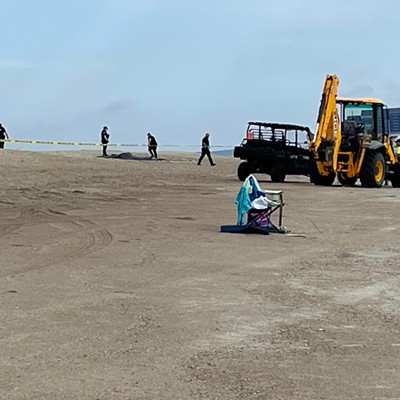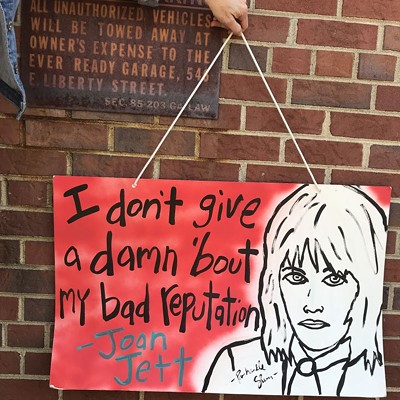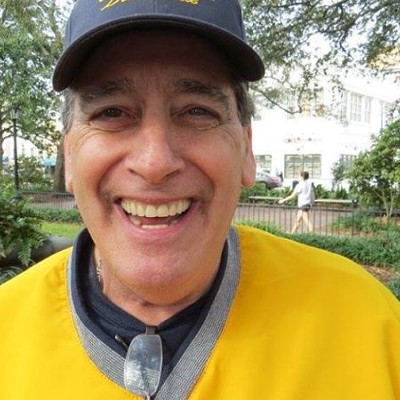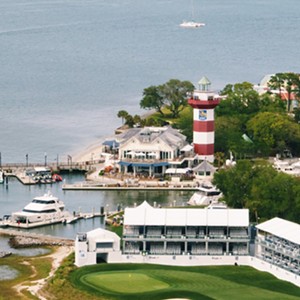ON THE ROAD to Tybee Island one late afternoon last week, I was stupefied once again at just how gorgeous we have it around here.
The sun melted into the marsh in a fluidic glow of pink and peach. A pair of snowy egrets sailed across the horizon. Caught in the bath of golden buttery light, I forgot that I was on the eleventh hour of my workday and instead marveled at how beautifully the world turns even if no one’s looking.
Hoping to hang on to the shimmer of the sunset just a little longer, I popped into Fish Camp for a quick cocktail. (If we weren’t supposed to show up to evening meetings having already tempered the day’s edges, they wouldn’t be scheduled right after happy hour, amiright?)
Deferring to the mixological genius of bartender Laura Myers, I ordered the Octopus’ Garden—an ambrosial concoction of Campari, vodka, fresh-squeezed grapefruit juice and a purple hibiscus flower.
It was a fortuitous choice, since undersea habitats were on the agenda for the Tybee City Council meeting that eve.
While a good third of the room had turned out to show support for plans to build a municipal pool on Tybee (the first I’ve heard of this fantastic idea), the rest were locals and others who had come from the mainland and beyond to rally behind a proposal that would ban single-use plastic shopping bags on the island.
“It’s good to see City Hall crowded,” commented mayor Jason Buelterman after the 80 or so folks intoned a hearty Pledge of Allegiance.
(I felt a little sorry for the poor gentleman who had to deliver the GIS report on storm drains first, ‘cause his fan club seemed non-existent.)
The brainchild of activist Ashley Workman, the proposed ordinance would replace those ubiquitous carryalls at the point of sale of Tybee’s 75 or so commercial businesses with reusable ones or paper. The measure would keep thousands of bags from billowing into the surrounding seas and most certainly brand Tybee as an eco-forward destination, bringing a higher caliber of tourist to the island.
“The road ends here on Tybee, and the items purchased here tend to stay here, increasing the possibility that plastic bags will end up as litter in the ocean,” enjoined Workman, the founder of last year’s Bring Your Own Bag Project that encouraged restaurants to promote less waste with their to-go orders.
Now a member of the Tybee Island Resource Committee and a top-notch Powerpoint whiz, this surfer girl has pushed her passion to the next level with her presentation.
Some facts: Americans grab up over 300 billion plastic bags a year—that’s 1500 per family. The 12 million barrels of unrenewable fossil fuels used to make them could power a million cars for a year, though plastic bags take a thousand years to biodegrade on their own. Bags kill more than 100,000 sea animals with every turn around the sun, including the species of endangered sea turtles that nest on Tybee.
“All this drama for an average use of just 20 minutes,” Workman explained to the council sadly.
Her cause has solid support from those who see the tragic effects of our bag addiction, and the council heard from them, too.
“If you could see what I’ve seen down there, you wouldn’t think twice,” deplored deep sea diver Buddy Brinkley, who recounted seeing a dolphin with its flipper tightly wound in a plastic bag. He’s also swum through miles of coral reef off the coast that is festooned with bags, waving in the current “like its own bed of seaweed.”
A reminder that the world also gathers blight, even when no one’s looking.
A dozen countries, including Ireland, Chile, Australia and even filthy ol’ China have limited or outright cut off plastic consumption. U.S. bag bans have already passed in Chicago, the Outer Banks and the entire state of California. Tybee Island’s would set the precedent in Georgia.
“You could be the first ones. You could be the leaders,” encouraged Clean Coast Savannah’s Karen Grainey, who has seen shocking amounts of plastic detritus while leading monthly clean-ups on the state’s most remote beaches.
The mayor promised to consider Workman’s proposal, and Monty Parks advised her to reach out to the business community, particularly the owners of the IGA market, “if you want something that will pass.”
“Let’s see how we can make this a win-win,” agreed councilmember and longtime environmental advocate Paul Wolff, complimenting Workman on the well-crafted ordinance.
Yet with all this reason and rationality, there has been online opposition so rabid you’d think it was posted by a bunch of pollution-happy pit bulls. Lemme ‘splain something: A point-of-sale ban does not mean Obama is coming to your house to take away your plastic bags.
You will not have to carry meat home from the market loose in the car, steaks draped over the backseat next to the golf clubs. No one will force you to pick up dog poop with your bare hands. You will still be able to drive over the Bull River Bridge to Wal-Mart and stock up on all the plastic crap you could ever want.
For those pleading the financial hardship of purchasing reusables, understand that plastic bags aren’t actually free: Shop owners embed them in the cost of doing business, and their goods and services could become less expensive if people bring their own.
Most confounding is the argument that a ban is a violation of Constitutional rights. (It’s not.) Freedom is more than shouting “don’t tell me what to do” like a bratty toddler on Facebook—it’s a recognition of what a gift it is to live in a country where we’re able to take action against the destructive forces of our virulent consumption.
Really, as far as I can tell, the only valid case for keeping plastic bags around is so we can use them as flotation devices when sea levels start lapping at the door of City Hall. (See, GIS guy? I was listening!)
In the face of so much impending earthly catastrophe, ridding one tiny island of plastic bags won’t save all the turtles or clean up the underwater chemical forest. While mostly symbolic, it’s an effective way to remind people of the preciousness and fragility of Tybee and our surrounding ecosystems.
Sure, it might seem inconvenient at first, but we are a tractable and clever species. As Workman told the council, “we must give ourselves credit for being adaptable.”
The Tybee Plastic Bag Ban won’t solve everything. It might not solve anything. But it is a step towards the reverence our ocean and beautiful beach deserve.
And if Tybee should pass the bag ban AND the pool? Well, that just might make it the road to paradise.

